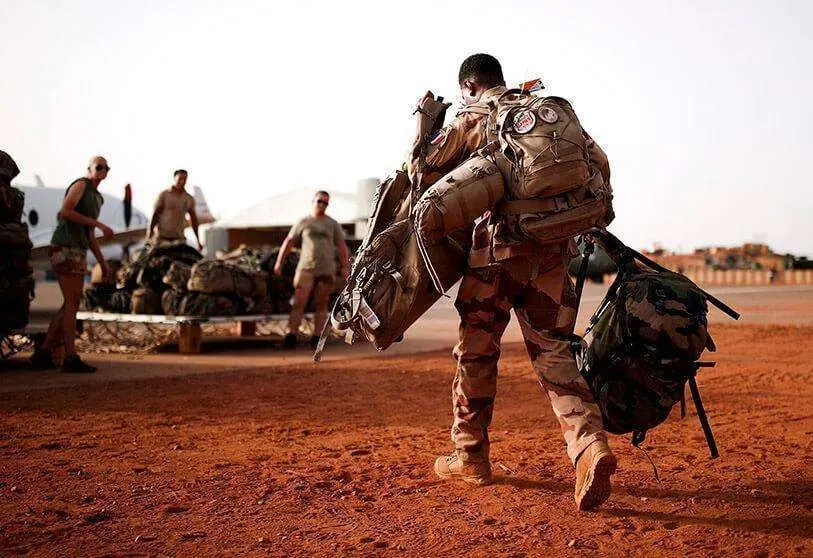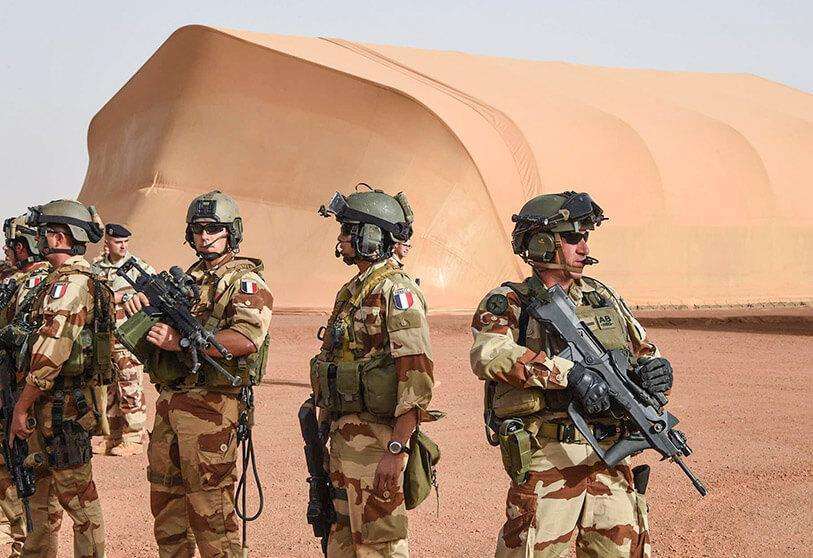Mali: the beginning of the end of French intervention?

This year got off to a tragic start for the French army in Mali: five soldiers were killed in two ambushes with explosives in five days (28 December-2 January). The latest action had the sad honour of including the first woman killed in combat in Operation Barkhane.
In France, such deaths have reignited the debate whether it makes sense to continue in Mali, especially when de-escalation should begin. The facts and time are against maintaining the mission. France has lost 55 military personnel - 44 of them in combat action - and public opinion is showing signs of fatigue: according to a poll by Le Point magazine, 51 per cent of respondents oppose the French presence in Mali. 1 Politically, Barkhane may influence the future of the Elysée: next month marks the one-year anniversary of the G5 Sahel meeting in Pau, where France pledged to increase the number of troops on the ground, while urging the countries in the area to control their security themselves. A meeting in N'Djamena, Chad's capital, is expected on 15-16 February to assess what has been achieved. Finally, next year there are presidential elections in France and it will be nine years since the start of the Paris military intervention, one year short of the ten-year limit set in 2013 to end the mission. The conflict is unpopular among voters on the far left (France Insoumise) and on the right (both moderate and National Front). Barkhane may come out campaigning, especially in terms of its impact on improving France's security and in the debate over the usefulness of the mission for armed forces involved in many foreign theatres of operations and in citizen security, which involves considerable expenditure of money and material.
Why did France become involved in Mali and, by extension, the Sahel, and what progress has its presence made since Operation Serval - then Barkhane - began in 2013?
The origins lie in Mali, specifically in 2012, when a Tuareg separatist uprising was manipulated by jihadists based in the north of the country. By the end of 2012, the jihadists were approaching the capital Bamako, risking the country becoming an Islamic state. To prevent this, France - the former colonial power - intervened militarily. The jihadist advance was halted and the lost ground was regained. Since then, France and international actors such as the United Nations and the European Union have established missions on the ground to stabilise the country and the region.
Operation Barkhane, rather than an operation concentrated in Mali, is spread across the Sahel with bases in Mali, Chad, Burkina Faso and Niger. It has 5,100 troops on the ground 2 and abundant air and ground assets. Since its inception, it has been one of the missions to which the Elysée has attached importance, something that was seen in 2020 when Macron announced an increase in the number of troops. It has also been given a lot of media space, not only in terms of casualties, but also in reports on the ground about the military's day-to-day operations. 3

Has France's presence achieved anything? Yes and no.
On the one hand, the spectre of a caliphate in the area has disappeared: none of the major terrorist groups present in the area (Al Qaeda in the Islamic Maghreb, Islamic State of the Greater Sahel), 4 have tried again to take control in Mali - the origin of the current situation. Currently, terrorist groups are scattered across the Sahara desert and divided into various factions that combine to fight against international missions and each other, making a repeat of the 2012-2013 situation difficult.
Several leaders of jihadist groups have also been neutralised, as was the case in June 2020 with the death of Abdelmalek Droukdel, founder of Al Qaeda in the Islamic Maghreb.
Despite these achievements, the mission has not succeeded in eradicating the scourge of terrorism from the area. Not only is terrorism still present, but it has spread throughout the countries of the region, especially Burkina Faso and Niger. This violence, in addition to being jihadist, is also inspired by inter-ethnic tensions in the countries of the region. In this respect, Barkhane, in its fight against terrorism and its support for local governments, has reinforced old ethnic and local tensions that existed before the French intervention, which have contributed to degrading the security of the countries in the region, something that was not the case in 2013. As a result, the operation may result - if the ten-year deadline for the mission's completion is met - in a more unstable Sahel with the inter-ethnic tensions described above being the ideal breeding ground for exploitation by jihadists, as seen in Mali.
Over the years, French intervention has come up against a socio-political reality that makes its presence difficult in the eyes of local societies.

In addition to the inter-ethnic and social tensions present in the area and described above, there is also poor governance, abuse of power and corruption of state structures. While this problem predates Barkhane, in the eyes of local people, the French presence legitimises these corrupt institutions. The protests against Barkhane by the Malian people, which then led to the anti-government riots that ended in the coup d'état in August last year, exemplify this malaise. This anti-French current has not stopped, as evidenced by the Malian authorities' decision to ban a demonstration against the French troops on January 20. 5 This support for corrupt institutions was evidenced by the Elysée's behaviour in the wake of the coup: France initially condemned the uprising and called for the return of civilian control over the government. To date, the situation has changed, with the transitional executive expressing gratitude for the presence of foreign troops in the area 6. Unpopularity of the French presence may result in Mali remaining a focus of regional instability if Barkhane ends in 2023, as institutions will remain in place and the coup demonstrated the effect that popular clamour could have as a fuse to topple governments. Local distrust of France will also increase, which may complicate the stabilisation of these countries, as many inhabitants, sceptical of Paris, may be more tempted by jihadism or ethnic affinities than by state institutions, perceived as French puppets.
Barkhane's future is complicated: military losses and public fatigue with the conflict are mounting, which may influence the future political landscape, with a presidential election in 2022 as the main event. The results of the operation are mixed: while it has not achieved a repetition of the 2012-2013 scenario and has succeeded in killing the leaders of several terrorist groups, the French presence, especially its support for corrupt local governments, has reignited old ethnic tensions contributing to the spread of violence beyond Mali. In Mali, the country of origin, this support for local institutions has given rise to anti-French sentiment, with demonstrations against the mission. This suspicion still continues, despite the August 2020 coup, due to the transitional junta's recent support for the presence of foreign (mainly French) troops on the ground.
We will have to keep an eye on developments in the area, both in terms of more French deaths as well as events after the meeting in N'Djamena, in order to predict what the future of the French presence in the region will be.
- ''Sahel: half of the French opposed to the French presence. '', Le Point, 11 de enero de 2021. Available in: Sahel: half of the French opposed to the French presence - Le Point
- The facts about Operation Barkhane from "Press Kit: Operation Barkhane", Ministry of the Armed Forces, September 2020. Available in : Press Kit BARKHANE of 28 September 2020.pdf
- See the following links: Operation Barkhane. "They crashed!" Exclusive account of the rescue of the crew of the Gazelle - YouTube, Report: French soldiers in Mali / French soldiers in Mali - Operation Barkhane - YouTube y Exclusive video: Niger, on mission with the parachute commandos - YouTube
- These two groups have been included because of their relevance as franchises of terrorist groups with international ambitions. In the area operating other groups based in local divisions (Etnia, estilos de vida) that the environment is creating an Islamic state in Mali.
- "Prohíben una manifestación contra la presencia de tropas francesas en Mali", Europa Press, 20 de enero de 2021. Available in: Prohíben una manifestación contra la presencia de tropas francesas en Malí (europapress.es)
- "Mali: The transitional president "renews his gratitude" to foreign armies", Africa Radio, 19 de enero de 2021: Available in : Mali: Transitional president "renews gratitude" to foreign armies - Africa Radio.










